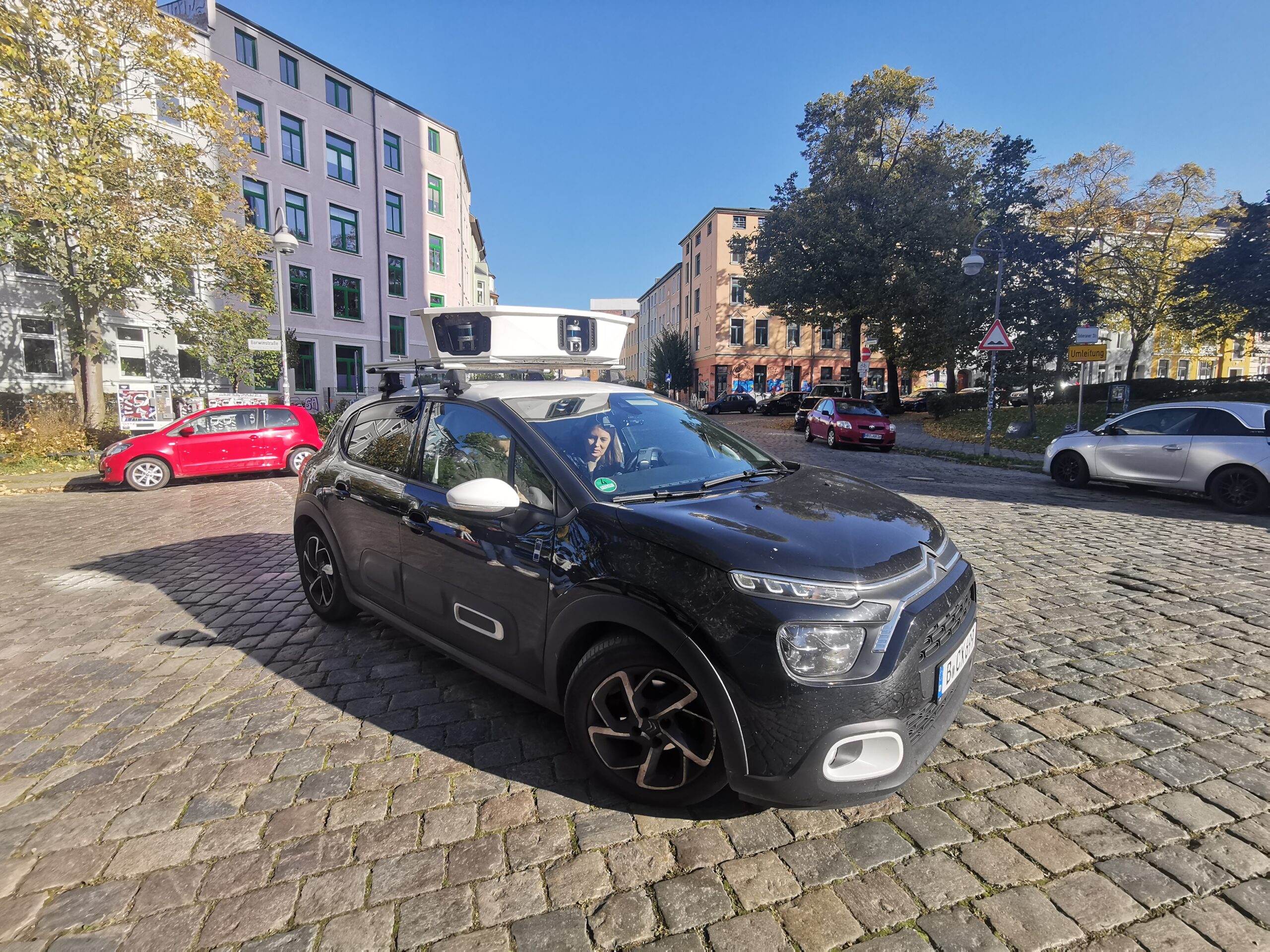The parking survey, planned until November, will record parked vehicles and process the data in fractions of a second. This technology replaces on-site counting staff and accelerates the evaluation process many times over. As a result, data on the available public parking spaces on the streets, parking demand, and user groups will be available.
The recorded vehicles themselves are not listed, as they are not stored but are immediately anonymized by the computer in the vehicle and converted into a 32-character hash value of numbers and letters. Only these are stored on the vehicle’s internal hard drive, making it impossible to trace back to the original vehicle. No photos, videos, or similar data are saved. All data protection requirements are met. This scanning car technology is already in use in many places. Berlin, Freiburg, Düsseldorf, and Spremberg are just a few cities that have used it to analyze their parking space situation in detail.
The traffic and mobility concept is expected to be completed by early 2026. This will be accompanied by extensive citizen participation, which will be designed by the end of the year and is expected to begin in 2025. The planned traffic concept for KTV is a measure from the framework plan for the district approved by the city council in spring 2022.
